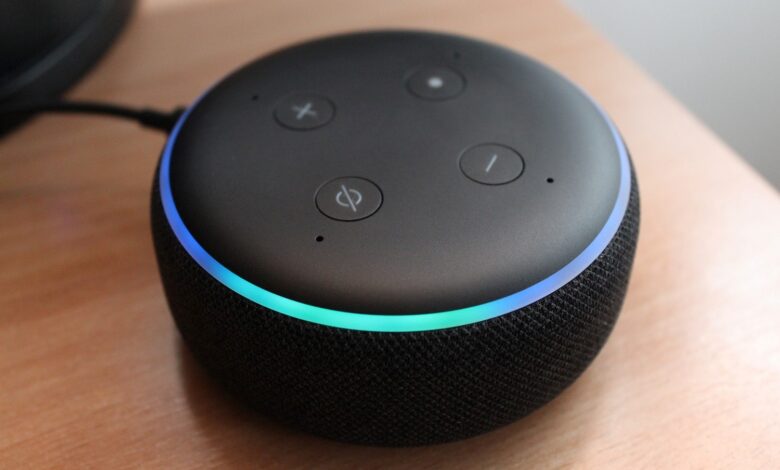
“I am sorry I can’t help with that”
Why I don’t think hotels are ready for voice assistants by Brendon Granger
Let me start by saying that I’m a self-confessed tech geek and I use voice assistants all the time. I bought my first Google Home back in 2016, a full year before they were released in Australia.
I also have over 20 different connected devices in my house, so I get to say things like, “Hey Google, turn off the bathroom light” — which still feels a bit like magic.
Our latest AccomNews print issue is available now! Read it HERE.
But do voice assistants belong in hotel rooms? I’m not convinced they do, at least not for the foreseeable future. Let me explain why.
Their benefits are limited
When voice assistants first arrived on the scene, it felt like we might be on the cusp of a Jetsons-style era of hyper-convenience. Our AI-powered home help would become integral to the smooth running of our homes, relieving us from mundane tasks and unnecessary physical exertion (like writing to-do lists). But none of that has really happened.
In fact, internally leaked Amazon documents reveal that most Alexa users discover half the voice features they will ever use within three hours of activating their device.
Unless voice assistants become more convenient than a smartphone, or offer new applications that genuinely surprise and delight, it’s unlikely that hotel guests will see them as an in-room ‘perk’.
They’re still unreliable (just ask my wife)
Depending on who’s talking, voice assistants aren’t exactly the best listeners. For instance, it’s a running joke in our house that our Google Home has ‘Soviets’ on the shopping list (because it originally misheard my wife saying ‘serviettes’). Of course, our lost in translation experience is far from uncommon.

The Washington Post recently discussed the frustrations of the technology’s limited language comprehension. Users find that their voice assistants frequently misinterpret instructions. One interviewee was irked by how Google Assistant confidently announces “sure!” before providing a “bafflingly incorrect” response to a request.
The primary reason for installing voice assistants in hotel rooms has been about convenience — to speed up the delivery of information and services to guests. But if a lot of guests just find them irritating, and are also concerned about privacy, then it’s hard to justify the expense.
They don’t solve a problem
When the internet first came out, I remember hotels hurriedly installed wireless keyboards so guests could do email on the TV.
It seemed a good idea at the time — a smart way to enhance the in-room experience and differentiate from less tech-savvy rivals. In reality, this ‘innovation’ ended up being a huge waste of money. Guests, of course, much preferred sending emails on their laptops or mobile devices, which were far easier to use.
With voice assistants, it feels like history repeating itself. For instance, there are better (and potentially less frustrating) ways to order room service than voice. Guests can access and order dinner from digital menus by scanning a QR code with their smartphone — all in a matter of seconds.
After chatting with hoteliers about this topic, it also seems that voice assistants don’t deliver any real ROI. It’s easy to imagine ways they might, such as learning about a guest’s preferences and proactively cross-selling to them during their stay. But I suspect many guests simply wouldn’t want that experience.
Concerns about security
When I wrote about the future of voice assistants a few years ago, I discussed concerns over security. Those concerns haven’t gone away.
For instance, Amazon has reported that for years, 15-25 percent of Alexa users stop using the device after around two weeks — and the company believes that concerns over privacy are a primary reason for this drop-off.
If people feel this way at home, they’ll almost certainly feel that way in a hotel — with the added concern that other people might be listening to their conversations. It’s hard to imagine how these fears over privacy will ever be fully allayed.
This article originally appeared HERE
With a great passion for all things hotels, but in particular technology and a desire to help others his role as director at Technology4Hotels allows him to do both. Brendon has worked with hundreds of hotels to help them with their in-room technology. In the last few years he has helped them to increase guest satisfaction, strengthen guest loyalty and encourage repeat bookings as well as win awards such as the best business hotel, best city hotel, best upscale hotel and best luxury hotel in Australasia. Always going the extra mile, Brendon began his hospitality career over twenty five years ago working in 5 star hotels whilst completing his Bachelor of Business in Hotel Management. He has held various management positions within 5 star hotels, worked as a consultant in both hotel feasibility and technology and has an extensive background in hotel technology.







